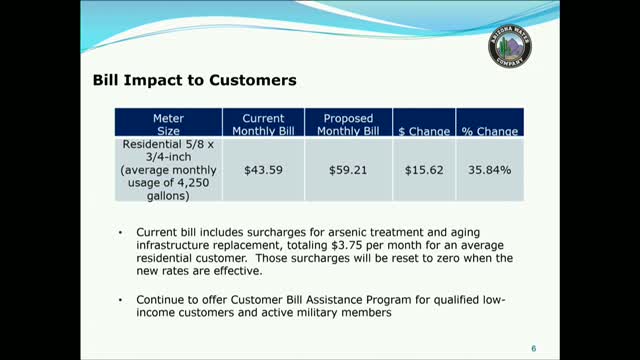Sedona approves $1.87M contract for transit maintenance-and-operations center design
Get AI-powered insights, summaries, and transcripts
Subscribe
Summary
Council unanimously approved a professional services contract with Kimley‑Horn & Associates for design of a transit maintenance and operations center; contract value $1,872,014. Staff said $720,000 of design cost is covered by a federal grant and further construction grant opportunities will be pursued.
The Sedona City Council on Jan. 14 unanimously approved a professional services contract with Kimley‑Horn & Associates Inc. for the design of a transit maintenance and operations center. The contract is for $1,872,014.
City procurement officer Ian Cooper and project staff described a qualifications‑based selection process required by federal grant rules and Arizona procurement law (including 2 CFR Part 200 and state provisions that implement a Brooks‑Act‑style qualifications selection for architecture and engineering). The solicitation was advertised broadly; 61 firms downloaded the RFQ, 34 attended a pre‑submittal meeting, and four firms submitted statements of qualifications. An evaluation team that included regional partners scored respondents; Kimley‑Horn ranked highest; staff then conducted scope clarification and negotiated a final fee.
Staff briefed council on the city’s independent cost estimate (ICE) and noted the originally proposed fee was reviewed against that estimate; after scope review and negotiations the final contract amount was presented to council. Jonathan (project manager) and Curt (project lead) told council the contract funds A/E design through the bid‑ready construction documents. Staff said the city has a federal grant covering a portion of design; $720,000 of the architecture/engineering cost will be funded by the grant award already in hand. The city intends to pursue a separate competitive federal construction grant (significant lands/Federal Transit Administration or comparable program) for the building phase; that construction grant may provide a high federal share (staff cited examples of up to 85% federal participation in construction funding), but construction grants are competitive.
Procurement staff explained that the Arizona procurement statutes restrict negotiating scope/price simultaneously with multiple finalists and require selection based on demonstrated qualifications for A/E services; price is negotiated only with the top firm after selection. Council asked about timing, potential for cost changes, and whether pursuing additional grants could affect the project timeline. Staff said federal and ADOT review steps and grant cycles inform the schedule; staff expects a multi‑phase design process that will proceed through 30–60–90% milestones and that final construction timing depends on grant awards and permitting.
Council approved the contract with 1) the recommendation of staff and the evaluation team and 2) acceptance of the negotiated fee. Council also discussed coordination with ADOT on Highway 89A access and public comments suggested coordinating with recreation/trail stakeholders to reduce multi‑user conflicts at nearby routes.
